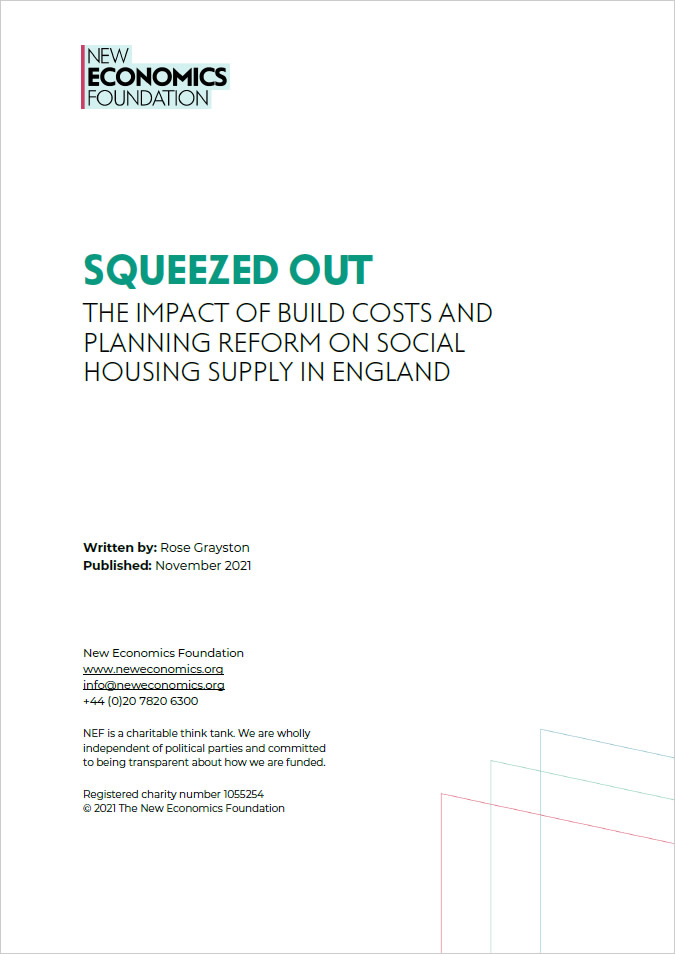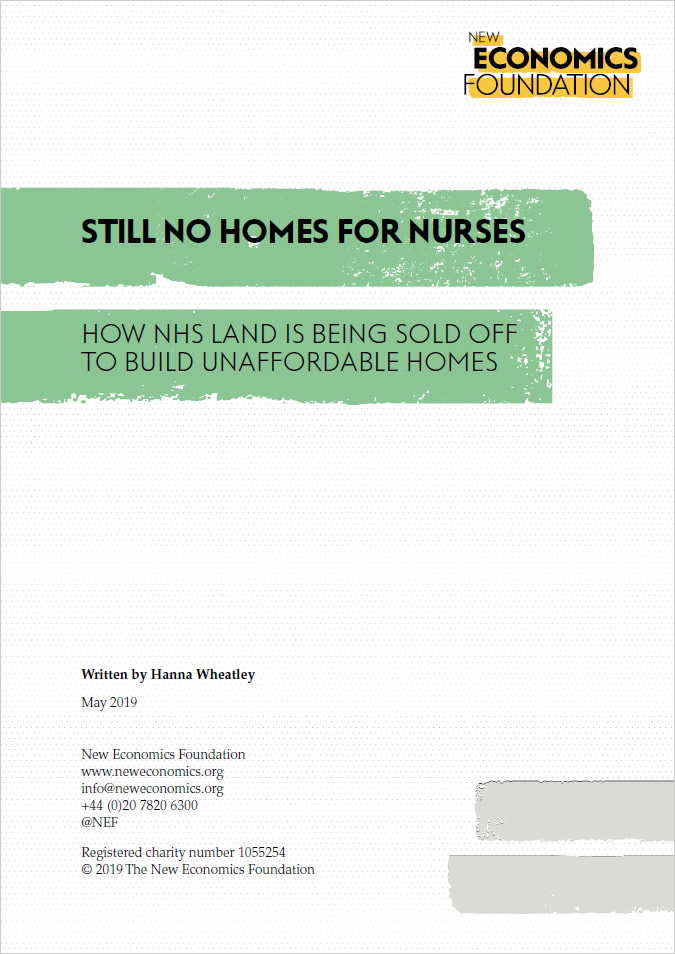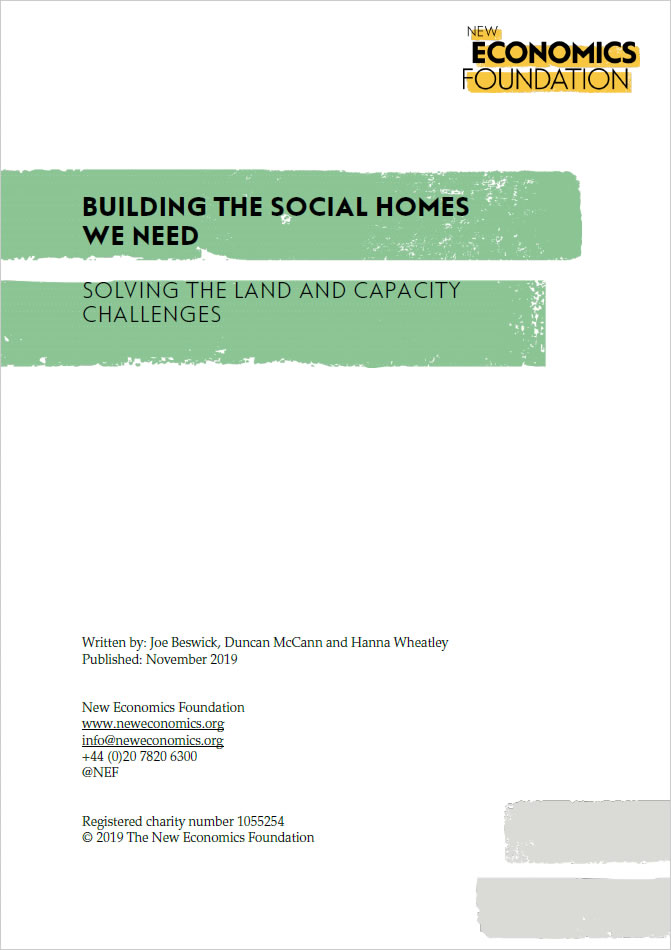
Funding at a glance
Programme: Backing Community-Led Housing
Amount: £264,782 grant
Approved: 2018
Timescale: Three years
Status: Funding complete
New Economics Foundation
Making public land more available and accessible to community-led housing organisations so that more affordable homes can be created.
Why we funded this project
To enable local and regional authorities across England, in partnership with community groups, to improve the supply of housing for people on low incomes by delivering public land for affordable, community-led development.
Strategic purpose
To increase access to land and properties not currently used as homes.
Project description
This three-year project expanded on previously funded work and was designed to realise a step-change in enabling more community-led, affordable housing to be built on public land. Public land is key to solving local affordability crises because it provides a low or no-cost alternative to the financialised UK land market.
Nef has helped build the case for public land to be used for affordable housing instead of being required to be sold to the highest bidder. Nef created a coalition with senior influencers who continue to promote the relaxation of these rules and seek a change in national policy.
As part of this project, Nef planned to deliver more affordable housing on public land by using the planning system, either to enable the community to win the site for development, or to maximise the number of affordable homes built on a public land site once it is sold.
This work was delivered through three workstreams:
-
- Partnering with local authorities and community groups in areas with large-scale public land sales to increase affordable and community-led housing on those sites: Nef raised awareness of the planning powers existing within the authority and among community groups, and sought to ensure that public land was used for community development or a considerably higher output of affordable homes was secured than in other public land sales.
- Demonstrating the role public land can play locally in solving the affordability crisis: This workstream focussed attention on three local authorities with severe affordability issues. Nef worked to demonstrate to these authorities the difference that the effective use of public land could make to the housing crisis by reducing the cost of delivering genuinely affordable homes and providing the conditions for the scaling-up of community-led housing.
- Catalysing a shift away from the disposal of public land at the national level: Surplus public land provides a means of achieving affordable house-building, but the size of this opportunity diminishes daily with the ongoing sell-off. This workstream looked to grow the national campaign against the sell-off, and helped build the argument for reform. It provided the most in-depth analysis of the land sale available, using the data already collated for the land map to examine the output and impact of the sale in terms of housing.
The collaborative approach used by Nef has engaged with the Mayor of London and key national bodies such as: Local Government Association, National Community Land Trust Network, Royal Town Planning Institute, Shelter and Town and Country Planning Association. This coalition has been used to deliver a strategy that targets key influencers and institutions in central government, so that policy change becomes more likely.
In May 2019, Nef published Still No Homes for Nurses, a report that considered the sell-off of NHS and other publicly owned land. This report recommended the formation of a People’s Land Bank, where land could be used for affordable housing rather than being sold off to the highest bidder.
Building the Social Homes we Need – Solving the Land and Capacity Challenges, was published in November 2019. This report looks specifically at the way that price and availability of land have contributed to current housing shortages and makes policy recommendations that could help ease the problem.
Following this, Nef published Squeezed Out in November 2021. In this report, Nef highlighted spiralling build costs and changes to England’s planning system, and considered the impact that these have on the provision of new social housing.
Back to current funding


